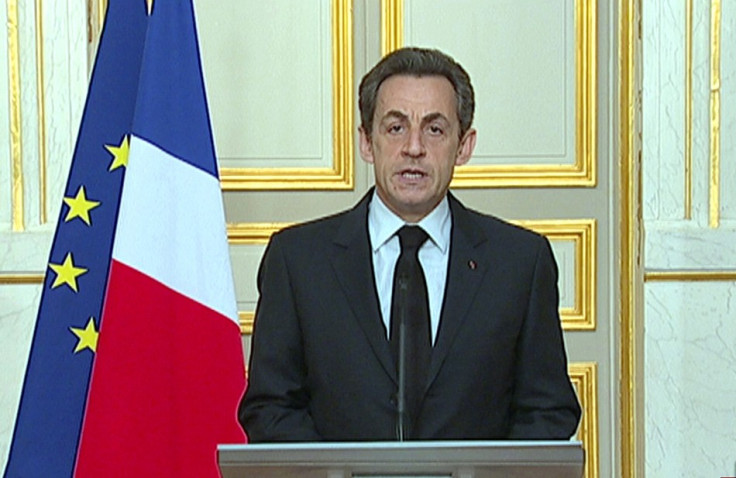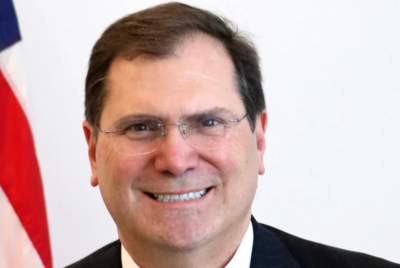Will Voter Apathy Save President Sarkozy and Give Him a Second Term in Office? Will Mr Bayrou Save His Presidency? It's a Close Call.

On 22 April 2012, France will go to the polls to elect their President. If no contender gains over 50 per cent of the vote to win outright in the first round of voting, then a run-off will take place between the two strongest candidates on 06 May. There are 10 candidates aspiring to be the country's Head of State including the present incumbent, Nicolas Sarkozy who is seeking a second five-year term in office. Mr Sarkozy's only serious rival for the Presidency is the Socialist candidate, François Hollande who, according to an LH2 Poll on first round voting intentions published on 12 April, has opened up a clear 2.5 per cent lead over the President at 29.5 per cent against 27 per cent. The same Poll shows an even more daunting hurdle facing Mr Sarkozy presuming he is one of the two strongest candidates. When asked how they would vote in a straight two-man contest, LH2 found that Mr Hollande wins 55 per cent to 45 per cent.
Is Mr Sarkozy's fate sealed then? Not just yet. Using the figures from the same LH2 Poll, the 06 May contest could be much closer than predicted if the other Party leaders endorse "their man" on a Right-wing/Left-wing bias and their supporters switch accordingly.
Such a scenario would align Mr Jean-Luc Mélenchon's Left Front which got 13 per cent of the Poll with the Socialists bringing Mr Hollande's total to 42.5 per cent. The other two main candidates should align with Mr Sarkozy. Firstly, Marine Le Pen of the National Front Party gained 14 per cent and François Bayrou's Democratic Movement Party got 10.5 per cent, so even if the Greens and the other four candidates swing behind Mr Hollande, Mr Sarkozy would still be the winner with 51.5 per cent of the vote.
A lot of "ifs"? Certainly, but that second round 10 per cent margin (and other polls suggest only a 53 per cent to 47 per cent split) might close depending on Mr Bayrou's recommendation. He refused to endorse either of the second round candidates in 2007, though indicated that the Socialist was the lesser of two evils. On Wednesday 11 April, Alain Juppé, France's Foreign Minister suggested that Mr Bayrou could become the new Prime Minister if Mr Sarkozy wins the Presidency.
The other factor, weighing more heavily with Mr Hollande and the Socialists, is apparent voter apathy with several polls suggesting that as many as 35 per cent of the electorate will not turn out to vote. France 24 reporters interviewing on the streets of Paris' northern districts had no trouble finding passersby telling them that "nothing ever changes", "politicians don't listen" - or only at election times - or simply that they would not vote. Past elections show that the parties of the Right have a more motivated voter pool who will make much more effort to make their vote count.
A brief summary of the main challengers against Mr Sarkozy:
François Hollande, Leader of the Socialist Party is 58 years old and comes from Rouen. He claims to be Centre-Left in his views and that all his proposals in his Party's manifesto have been properly costed. From a British perspective, he is most definitely to the left of the UK Labour Party and not of the centre. If elected President, he intends to bring in a 75 per cent marginal tax rate for incomes above €1 million. He would also restore the Retirement age to 60 for all those who have worked long enough.
There will be no surprise to learn that Mr Hollande will seek to bring in more taxes on big business and the banks as well as those better off. He also intends creating 60,000 extra teaching posts and subsidising employment in areas of high unemployment - France has a current unemployment rate of 10 per cent. France's Budget, which hasn't balanced for nearly 40 years, is to be balanced by 2017 states Mr Hollande, after President Sarkozy announced last week his intention to achieve the same by 2016. No mean feat for either gentlemen, France has a huge economy estimated to reach $2.75 trillion in 2012 but the National debt is roughly 86 per cent of that and servicing it the second-largest item of expenditure in the Budget.
Although he says that he agrees with the broad outline for saving the Euro, it is Mr Hollande's intention, once President, to reopen talks on the EU's fiscal pact of debt reduction. Angela Merkel doesn't look in a listening mood to me!
Jean-Luc Mélenchon is 60, Leader of the Left Party and standing for the Left Front, an umbrella coalition of parties which includes France's Communists. If elected, he would raise the minimum wage by 20 per cent (to around £10 per hour) and confiscate all income over €360,000 per annum by a 100 per cent tax levy. Easy-going and approachable, he has proved popular enough to tack Mr Hollande and the Socialists further to the left.
Marine Le Pen took over from her father, Jean-Marie Le Pen as Leader of the National Front Party. Worrying for the other parties, she is proving popular with the working-class young and in many areas may get as much as 26 per cent of the 18-25 age group's vote, a reflection, in part at least, of the considerable unemployment suffered by this age category - about 23 per cent - but also her making an effort to reach out to them and her outspoken demands on curbing immigration and against Islamic fundamentalism. At 44 years old she has broadened the Party's base out of Southern France - she represents a former mining area in the Nord-Pas de Calais Region - and made it much less extreme. On 24 March 2012, Mary Dejevsky reported in the Independent:
"She has become a credible politician, with a speaking style that combines passion with cool argument, She is equally at ease chatting to groups of mothers or the farmers who form the bedrock of National Front support."
I think the lady will be a little disappointed if she does not get 16 per cent of the first-round vote but is she really serious about France leaving the Euro?!
Sixty-year old François "Kingmaker?" Bayrou, head of the Democratic Movement won third prize in the 2007 Presidential Election with a very respectable 18.6 per cent of the vote in the first round. Standing this time as a viable centre party candidate espousing a liberal social/conservative fiscal strategy, Mr Bayrou wishes to see less government spending (regularly 50-53 per cent of GDP) measures to encourage business formation and growth and for France to demonstrate and take a strong lead within the EU.
Coming from a farming family in South-West France (Pau, Pyrénées-Atlantique) he is deserving of more recognition outside France. Very keen on matters regarding education, he was Minister of National Education from 1993 to 1997. Eager to establish a "third way" and critical of France's "two-party" system by which laws proposed by the Executive are passed without question or rigour if the President's party has a majority of parliamentarians - the usual state of affairs - he could be a force of balance and sound revision of legislation of whoever becomes France's next President.
On a personal basis, Mr Bayrou is more likely to share a pint with the Socialist, Mr Hollande but all indications on a political basis point to much stronger agreement with the policies of President Sarkozy. No need for the President to order the furniture removal van to the Élysée Palace just yet.
© Copyright IBTimes 2025. All rights reserved.






















